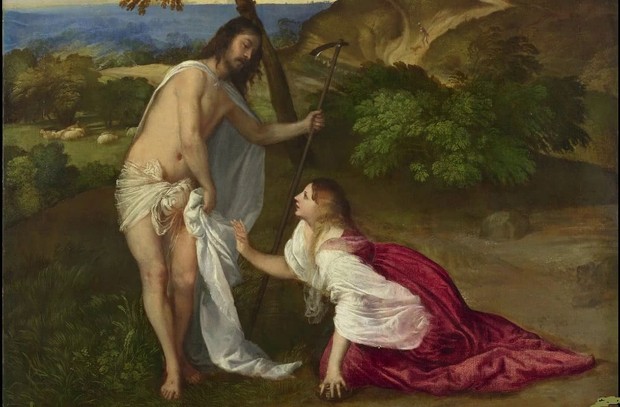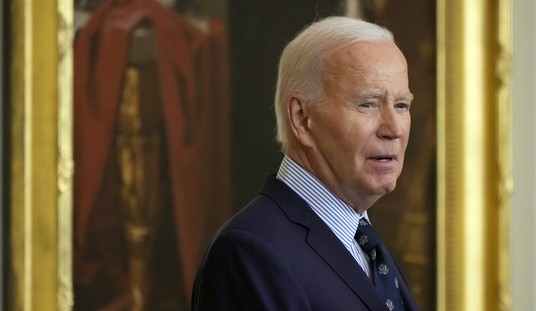
I suppose it is a credit to the compelling nature of Christianity that it, alone of major religions, is picked out to be mocked, derided, and co-opted by the secular world, in particular the secular left, to support what ever dumbcluckery they are pushing this particular week. I’m not talking about garden variety pig-ignorance that doesn’t take the time to verify Biblical fact–see my post on NPR’s Easter description for an example. I’m talking about the political hijacking of Biblical events to try to score points in a political debate.
The high points are inevitably Christmas (this past year we found out that Joseph and Mary were illegal refugees…go figure…I always thought they were subjects of the Roman Empire and never traveled outside that polity) and Easter. Easter, in particular, is confusing to the secular mind because it celebrates something that can’t possibly have happened. You can ignore the nature of the Incarnation and see Jesus, not as the Christ but rather as some kind of New Age guru. Easter, on the other hand, either happened or it didn’t. If it did happen, then you are confronted with the veracity of the Gospels. If it didn’t happen you have to explain the mass hysteria that took hold of Palestine around 33 AD (you date may vary) and ultimately dominated the Roman Empire, East and West.
The newest entry in this oeuvre of the blatant and heretical appropriation of the Word of God comes, naturally via CNN. It’s written by a guy named John Blake…you’d be forgiven for being unfamiliar with him. This is his take on Easter:
The men refused to listen to her story. She was publicly smeared as a whore. And when she emerged as a celebrated advocate, powerful men tried to silence her because she threatened their status.
Nevertheless she persisted. (dear Heaven, are we really going to compare any of the female companions of Jesus Christ to Elizabeth Warren?)
The woman we’re talking about, though, is not a leader in the #MeToo movement — the viral campaign raising awareness about sexual assault and harassment against women. She is Mary Magdalene, the first person Jesus appeared to after his resurrection, according to the New Testament, and the first person to preach the good news that he had been raised from the dead.
For billions of Christians around the world, Easter Sunday is a celebration of a risen savior. Yet what happened to Mary Magdalene shows that Easter can also be seen as something else — a #MeToo moment, some pastors and biblical scholars say.
They say Easter is also a story about how charismatic female leaders such as Mary Magdalene — and even Jesus himself — were victimized by some of the same behavior that sparked the #MeToo movement: the sexually predatory behavior of men, the intimidation of women and an orchestrated attempt to silence women who drew too much attention when they spoke up.
One of the most obvious links between Easter and #MeToo, some say, is the way Mary Magdalene has been slut-shamed.
There are a lot of theological and symbolic and historic reasons for why women were the first to discover the resurrection. Culturally, women prepared the dead for burial. Christ had been hastily removed from the cross on Good Friday (and no, please, I don’t want to even glimpse at the argument that actually Christ was crucified on Wednesday) and buried by Joseph of Arimathea, who was not, we believe, part of the entourage who followed Christ on his ministry. The women, and according to which account you prefer, there were more than Mary Magadalene present, were attempting to locate the body to ensure a proper burial. The symbolism of women looking for Christ in the garden (John 19:41) is a clear allegory to Eve and the Garden of Eden.
And yes, some of the disciples did not believe Mary Magadalene (and possibly other women) when they reported the Resurrection. But two did: Peter and John. These two engaged in a footrace to the tomb…spoiler alert, John won. The precedence of entrance, by the way, is part of the reason we Catholics believe the Bishop of Rome, that is the Pope, is the first among equals of the world’s bishops. This disbelief is not unique towards the words of women. It is obvious that the Apostles were, for the most part, unsure of what had happened. Thomas refused to believe the words of the other Apostles. The men on the road to Emmaus were definitely unsure about what had transpired.
As to the slut-shamaing? Well, that depends upon who you are. There is no evidence that Mary Magadalene is the “woman caught in adultery.” That story didn’t appear until the late 6th century. The Orthodox reject it. John Calvin rejected it. But, arguendo, let’s assume she was that woman. It is difficult for me to understand how Christ accepting her into his entourage, Christ telling her to find the Apostles and tell them of the Resurrection, and his directing her to stop being a prostitute were exercises in shaming. It is also difficult to see how the Christian world regarding Mary Magdalene as a saint (or whatever you Protestants wish to call her) is shaming her.
The women are with Jesus at the end and they are the first witnesses to the Resurrection for a reason. Culturally, that would have been their duty…to be with Christ as he died and to prepare his body for burial. Theologically, Mary’s presence and the presence of many other women in Christ’s ministry is a clear acknowledgement of the complementary, not the absolute equal, nature of men and women (maybe the #MeToo hoodlums should consider that for a moment, just sayin’). The fact that there were women in Christ’s entourage and none of them were at the Last Supper is also significant as that is the basis for the necessity of a male priesthood.
This article tries to bootstrap the story #MeToo movement into a very different story. The result is a butchering of the story of the Resurrection and a tragic self-beclowning by John Blake.












Join the conversation as a VIP Member